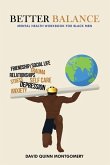Is it possible, through use of existing psychiatric medications or talk therapy, to treat someone who has become slightly to severely mentally ill, and not only eliminate symptoms of his illness but also leave him "better than well"? This is a question with which eminent American psychiatrist, Peter Kramer, grappled in his landmark 1993 book, Listening to Prozac. Kramer concluded, based largely on responses of his own patients to the then relatively new antidepressant Prozac, that "better than well" may indeed be attainable in some persons. Not surprisingly, this is a controversial conclusion that has been met with a large degree of skepticism, including in a number of books that have since appeared. The current book explores this issue in detail, including analysis of cutting edge neuroscience and psychiatric research, concluding that "better than well" may indeed be attainable in some individuals. If so, this phenomenon may have broad reaching implications for medicine and society in general.







